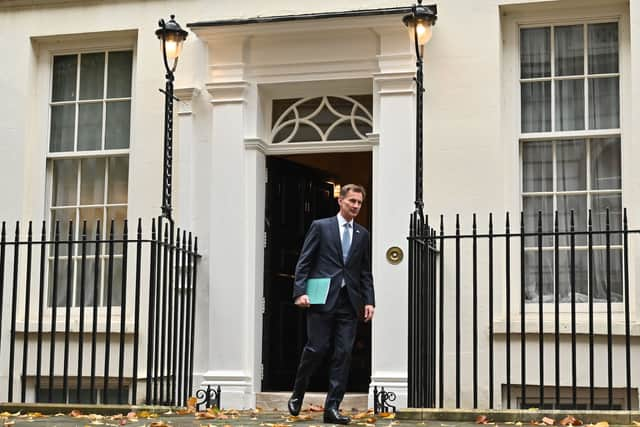Spring Budget 2023: what is the budget, when it takes place and what to look out for
and live on Freeview channel 276
One of the most significant days in the UK political calendar is almost here. The Spring Budget will effectively lay out the financial route the government will take for the next financial year.
This year’s budget will be against the backdrop of a significant cost of living crisis. It will also be the first budget since chancellor Kwasi Kwarteng’s first and last ‘mini-budget’ of November 2022.
Advertisement
Hide AdAdvertisement
Hide AdThe Spring Budget in 2023 will take place on Wednesday March 15. Depending on what is announced by the chancellor, there may be a significant impact on your finances.
It is anticipated that the budget will focus on policies which support the government’s main aims for the coming year. This is set to have a main focus on growing the economy, reducing public debt and halving inflation.
One of the most significant policies from the Autumn budget which will come into effect on April 1 is the increase in the national living wage. This will increase from £9.50 to £10.42 per hour.
Workers aged under 23 will also see their wages rise from April 1. Wages of 21 and 22 year olds will rise by 10.9% to £10.18 an hour, whilst apprentice wages will rise to £5.28 an hour. Anyone working on the minimum or living wages will see their income increase by 9.7% (10.9% for 21-22 year olds).
Advertisement
Hide AdAdvertisement
Hide AdAnother of the potential updates from the budget this week is the extension to energy bill support. From October to March, households received instalments of a £400 payment.
Although this payment came to an end, it is anticipated that a further payment will be announced from April onwards. Although not yet confirmed, this extra payment would cover households for £500.
Lucinda O’Brien, personal finance expert at money.co.uk said: “Jeremy Hunt is not expected to announce any tax cuts in his Spring Budget in March, but many of Hunt’s new policies announced in last year’s Autumn Budget will come into effect this April, after the release of the Spring Budget.
“Those earning more than the minimum and living wage, and earning below
Advertisement
Hide AdAdvertisement
Hide Ad£125,140, should not see any changes in how much tax they pay. Only those earning over £125,140 will be required to pay more tax from April 6th. Those receiving their state pensions, government benefits, or working on the UK’s minimum or living wages, will see their income increase from April 6.
“The cut in capital gains tax should be factored into the plans of any property investors or anyone selling their house. You will now be required to pay tax on any profit over £6,000 you make from selling property from April this year. Should you sell your house before April, however, you will only pay tax on any profit over £12,300.


“With rising inflation, the Bank of England is increasing its base rate to encourage saving. The base rate is currently 4%, but this is expected to rise further to 5.2% by the end of 2023. This is good news for savers, especially those who will see an increase in their income come April.”
Comment Guidelines
National World encourages reader discussion on our stories. User feedback, insights and back-and-forth exchanges add a rich layer of context to reporting. Please review our Community Guidelines before commenting.
